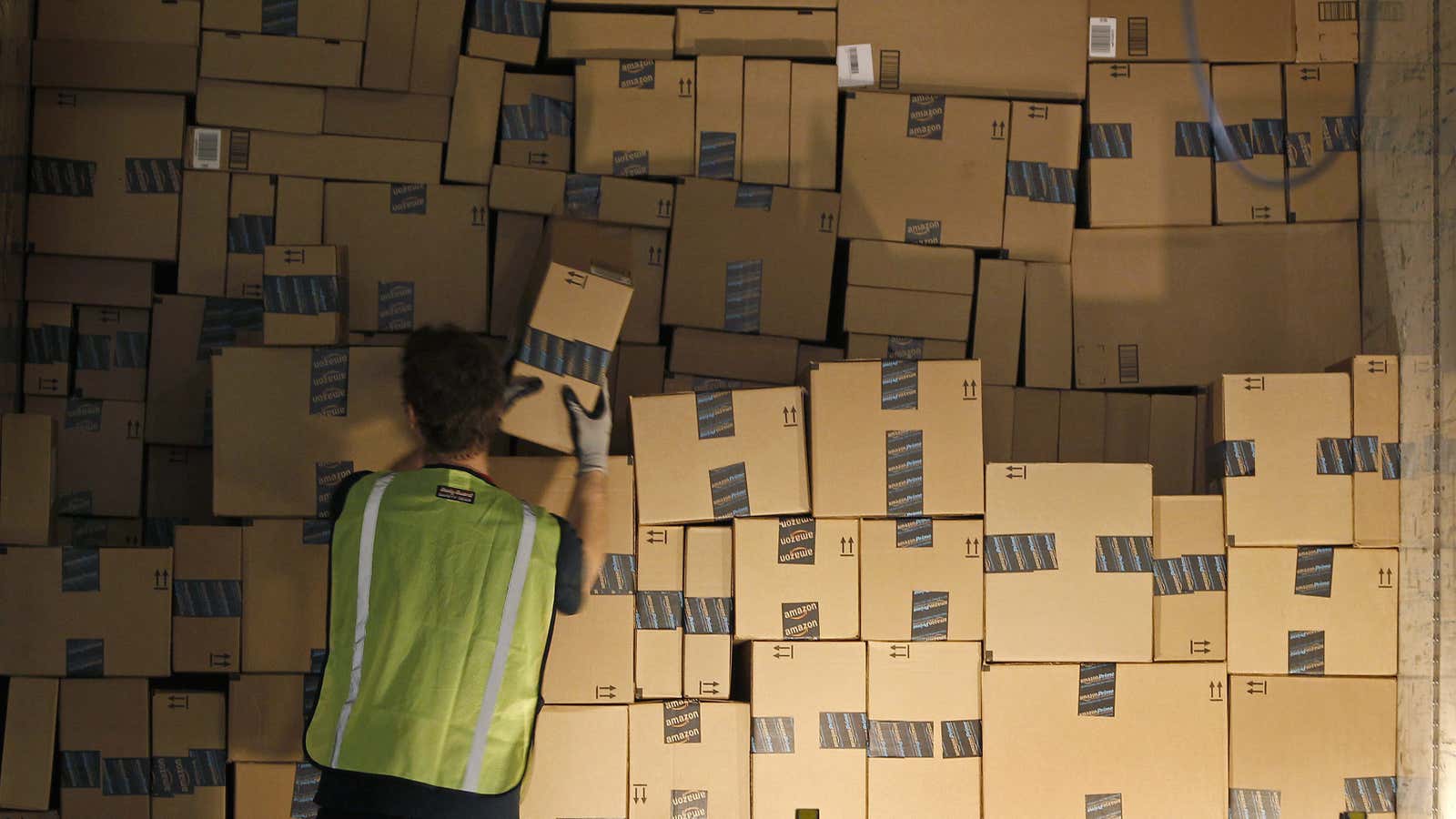Online retailer Amazon wormed its way into the lives of Americans with books, then with e-books, then with Kindle, then with loads of stuff besides books, then with “free” shipping at Prime, then with personal assistant Alexa. Now the e-commerce giant is coming directly into your home, not by drone, but physically, by partnering with some of the nation’s largest apartment landlords.
The Wall Street Journal reported today (Oct. 17) that Amazon has signed contracts with building owners and managers for more than 850,000 apartments in the US to install Amazon lockers—literally, lockers set up by Amazon to receive deliveries sold or fulfilled by Amazon. The locker program has been around for several years, but so far only commercial locations like pharmacies, groceries (looking at you, Whole Foods), and gyms have participated.
The apartment building program, dubbed “Amazon Hub,” will mix things up by accepting packages from all suppliers, not just Amazon. Participating landlords include AvalonBay Communities, Equity Residential, Greystar, and Bozzuto Group, the Journal reported. The lockers will only be open to apartment residents, who will get a notification when they receive a package with a code that lets them open up one of the locker slots.
From the Journal:
Apartment owners pay about $10,000 to $20,000 to purchase the lockers initially and don’t pay a monthly fee. Most landlords said they don’t plan to charge residents but to offer it as an amenity. They could also make back some of that cost in savings on staff labor.
Many landlords have struggled to keep up with the growing popularity of online deliveries. Two years ago, Camden Property Trust, then the 14th-largest apartment operate in the US, stopped accepting packages at all 169 of its properties after receiving almost 1 million parcels in 2014. Camden execs estimated each package resulted in 10 minutes of lost productivity, costing $3.3 million in annual employee wages. Camden president Keith Oden called it “package-gate.”
Amazon is constantly experimenting with faster and better ways to get stuff from warehouses to customers. The company is reportedly in talks with Phrame, a maker of smart license plates, to have packages delivered to car trunks. It is also working on a smart doorbell that would give delivery drivers one-time access to residential homes to complete deliveries. Amazon competitor Walmart is testing a smart-lock service that lets workers deliver groceries directly into a customer’s fridge.
An estimated 85 million people, or two-thirds of US households, subscribe to Prime, Amazon’s $99-a-year membership program that comes with free two-day delivery and even same-day delivery on certain eligible items. Prime members spend on average $1,300 a year, which, put another way, is a lot of packages.
Correction: An earlier version of this post misstated the cost of lost productivity to Camden Property Trust. It was $3.3 million, not $3.3 billion.
